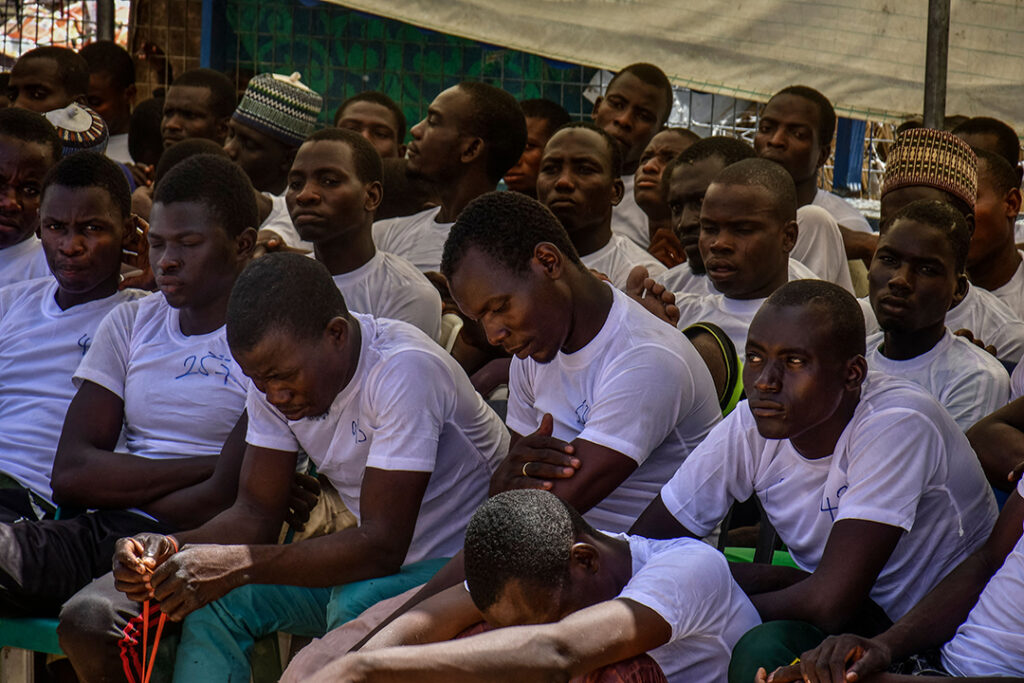ADF STAFF
Since its creation in 2016, Nigeria’s disarmament, demobilization and reintegration (DDR) program has sought to rehabilitate former Boko Haram fighters and usher them back into society.
However, a lack of funding and capacity have made it a struggle to keep the former militants from returning to the forest and to extremism.
Borno State-based security analyst Zagazola Makama said hunger has become a major issue in the capital, Maiduguri, where former insurgents and their families live together in camps with internally displaced persons (IDP).
“Many of those who repented had complaints of hardship, poor living conditions and lack of care by those in charge of the [DDR] program,” he told ADF. “There are reports of those who returned to the forest after undergoing rehabilitation and picked up arms against the government. Many had complained that the government had not fulfilled the promises it made to them at the time they surrendered.”
Despite Nigerian and regional military efforts, the insurgency is in its 15th year with no signs of ending. Mass-surrenders in recent years offered hope and fueled the momentum of security forces, but now the DDR program is stretched thin.
Gov. Babagana Zulum said Borno State has taken in more than 162,000 ex-militants and their families in the past two years. Meanwhile, there are around 1.7 million displaced people in Borno State, according to United Nations estimates.
The Borno State government provides money to the ex-militants in place of feeding them directly.
“They give them cash to buy what they needed,” Makama said. “But in most cases, they spend their money on other things and become hungry.”
In February, some DDR program participants and their families protested outside Dikwa camp in Borno, saying they had not received their payments. There have been at least three such protests since August 2023.
The Nigerian federal government promised skills training and business start-up money for ex-Boko Haram fighters who surrendered, but reportedly few have benefitted.
Professor Lawal Jafar Tahir, a political analyst from Yobe State University Damaturu, fears for Nigeria’s security should the ex-fighters return to the bush.
“They are more or less a timebomb now to society,” he told Deutsche Welle. “They have now gathered reasonable information and opportunity to attack people, particularly the civilians. When they revolt, it is going to be very hard for the government to control them.”
Speaking to a group of diplomats, development partners and humanitarian leaders in Maiduguri on March 7, Zulum tied together the DDR and IDP issues.
“In Mafa [camp] a few days ago I saw a group of 200 women who said they wanted to go back to the bush,” he told the group, according to local reports. “They said they are in the camp, and they are not getting anything. We went and calmed them. This also underscores the fact that there is hunger in the IDP camps. We need to provide them with durable and sustainable livelihood. We need to move away from the immediate solutions to medium- and long-term durable solutions, because once we don’t take care of the IDPs, we will be at a risk of them returning back to the fighters in the forest.”
Zulum said his government will commit 15% of its annual budget to resettle IDPs. He told the group that a sustainable solution will cost about $2.7 billion.
“I am committed to resettling our people into decent homes in secure areas, supporting them to reintegrate into communities or relocate to another place as they wish, respecting their choices and dignity,” he said. “Implementing the durable solutions pathway for IDPs will also significantly reduce the recruitment of jobless young men by Boko Haram, which is a threat to national and international security.”

